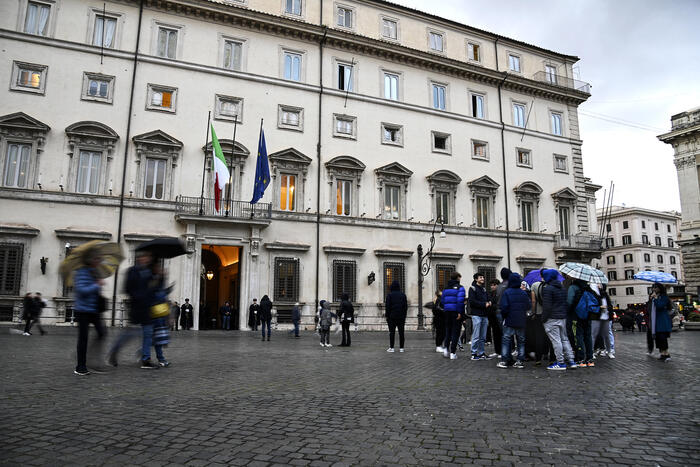In a response to a written question from several parliamentarians, the foreign ministers of the 47 member states of the Council of Europe responded to concerns about the independence of judges of the European Court of Human Rights (ECHR).
They had been seized of three separate questions from Members of the Parliamentary Assembly, two of them from the EPP, the party of the European conservative right.
Read also: The ECHR orders Russia to release Navalny "immediately"
The parliamentarians pointed out a risk of conflicts of interest among the judges of the European Court of Human Rights, endorsing the conclusions of a report by the European Center for Law and Justice (ECLJ) showing that out of the hundred judges of the ECHR, twenty-two of them came directly from the same NGO or from associations financed by this NGO, the Open Society. This report mainly listed 185 cases in which one of the NGOs affiliated to the Open Society was a petitioner, and where at least one of the judges had come from these associations. Since 2009, “
we have observed only twelve cases of deportations in which a judge withdrew from a case due, it seems, to a link with an NGO involved in the
business ”noted the ECLJ.
Deportation procedures still very vague
In their written questions, the parliamentarians notably pointed out the small number of European judges who had previously served as magistrates, and accuse the ECHR of giving too much importance to lawyers from lobbies;
they also denounced the absence of an effective deportation and challenge procedure in the event of a possible conflict of interest.
Thus Mr Barna Pál Zsigmond asked "
what measures will the Committee of Ministers adopt, within the framework of the reform of the Court, to remedy the weaknesses of the system and restore the credibility of the Court?"
"
Further steps could be taken by 2024 to strengthen the independence of judges.
The Committee of Ministers recalls in the preamble of its response the system of appointment of judges put in place in 2010 to guarantee the independence of the Court, entrusting an advisory panel of experts with the task of delivering an opinion on the three candidates presented by Member States, and in particular responsible for assessing their suitability and independence with regard to lobbies. However, he mentions work in progress in the Parliamentary Assembly "
intended to ensure the transparency and efficiency of the procedures for the election of judges
", acknowledging that this could still be the subject of further study. Finally, he mentions the upcoming review of "
additional means of ensuring the recognition of the status and seniority of the judges of the Court, thus offering additional guarantees to preserve their independence, including after the end of their mandate
”. New measures could therefore be taken by 2024 to strengthen the independence of judges.
One of the measures proposed by the ECLJ in its report included this suggestion: ask the judges of the ECHR for a declaration of interest when they take up their duties. Its director, Grégor Puppinck, believes with Le
Figaro
that its conclusions "
were implicitly accepted by the Committee of Ministers
", since the latter "
in no way calls into question
" in its response to written questions from parliamentarians.




/cloudfront-eu-central-1.images.arcpublishing.com/prisa/W33JSXVPKRF7FMDYEETPSPNNKY.jpg)




/cloudfront-eu-central-1.images.arcpublishing.com/prisa/XUMBJ34VOBACVCGU5L34VTE7NQ.jpg)